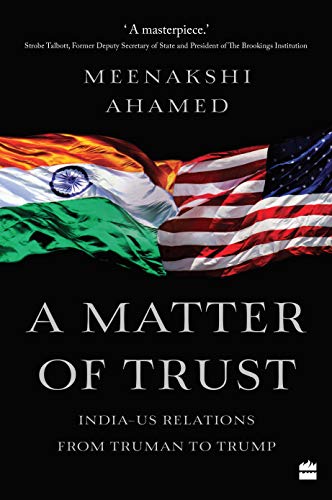Ahamed (an Indian-born, United States–based journalist and expert in American foreign policy) surveys 70 years of diplomatic and other relations between the United States and post-independence India. She covers specifically Indian issues (like the 1975–77 state of emergency declared by Prime Minister Indira Gandhi, when domestic “internal disturbance” was used as a pretext to cancel elections, censor the press, and imprison political opponents), as well as global events further afield (the Cuban missile crisis; Nixon’s visit to China; the 21st-century Global War on Terror). Ahamed focuses mostly on individual leaders (Indian prime ministers Jawaharlal Nehru, Indira Gandhi, and Manmohan Singh; U.S. presidents Harry Truman, Richard Nixon, and George W. Bush) and their personalities and political interests that affected Indian and U.S. approaches to economic aid, trade relations, and support on international issues. Her narratives about these individuals are based on presidential papers, newly declassified documents, and memoirs of and interviews with Indian and U.S. officials; their unevenness sometimes detracts from Ahamed’s overall narrative—for instance, the book is sometimes too laudatory of U.S. presidents and neglects to discuss their notable failures. On the whole, Ahamed’s quick-moving book provides ample context without getting bogged down by details.
VERDICT A broad view of recent Indian and U.S. history and the individuals involved in creating, and hindering, bilateral ties between the two countries.




Comment Policy:
Comment should not be empty !!!